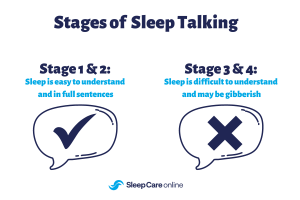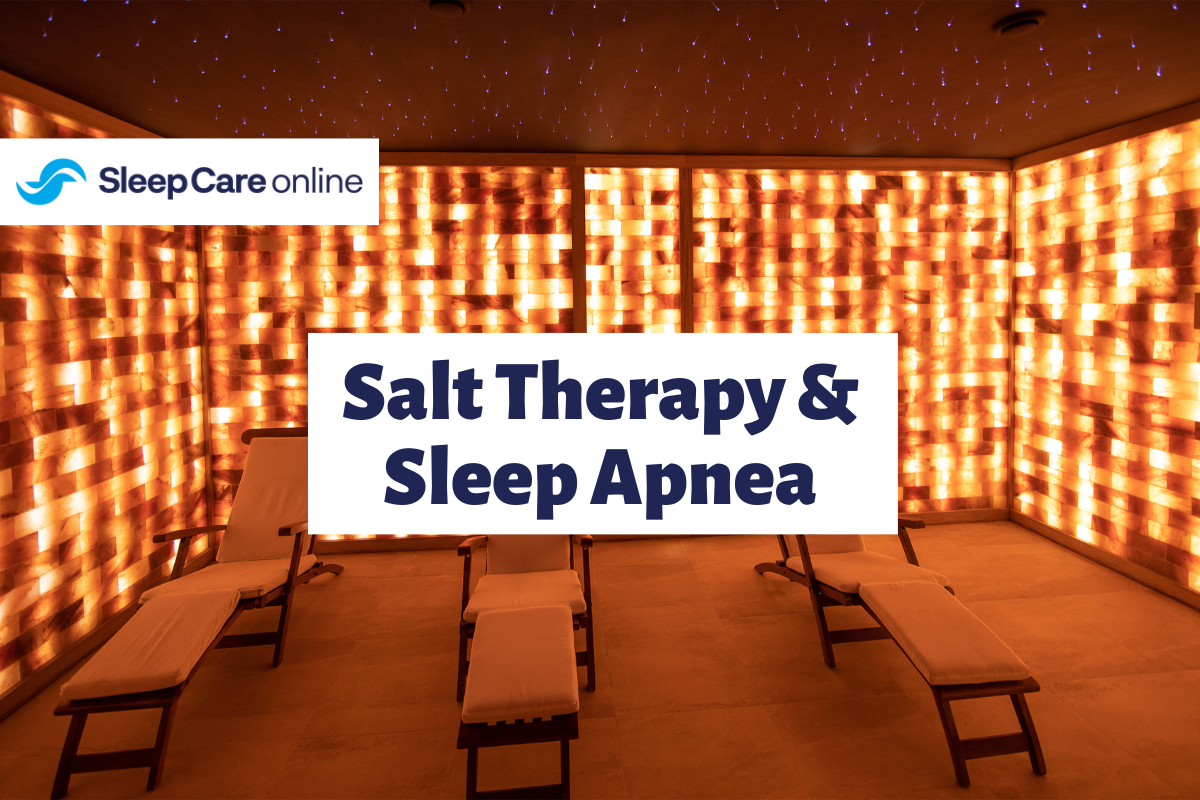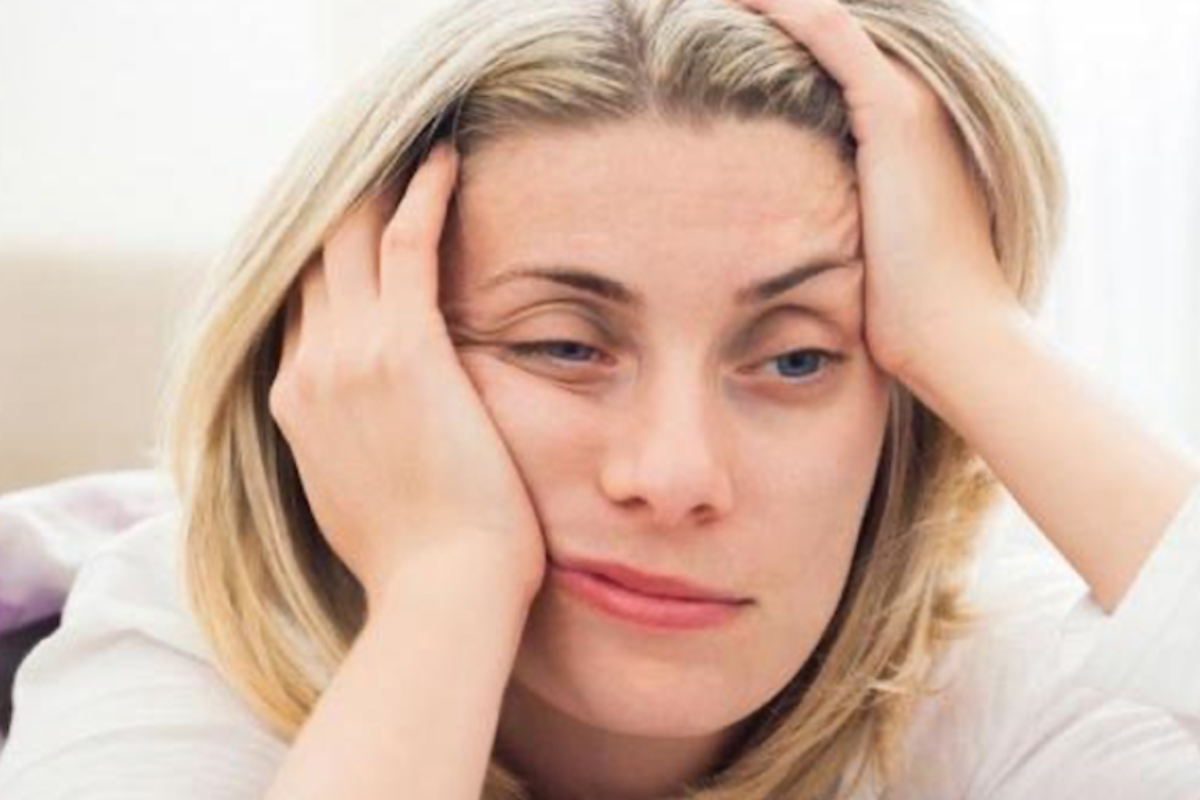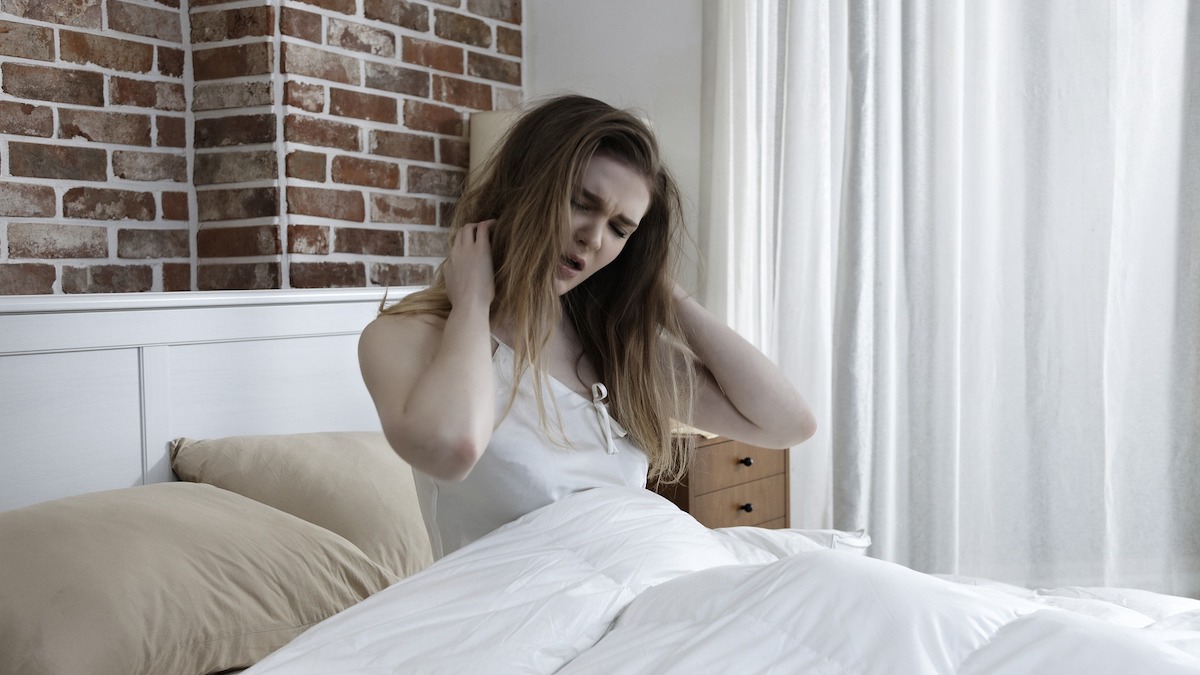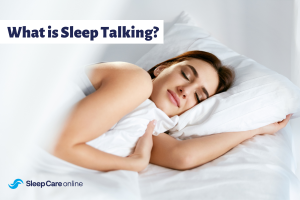 Sleep talking is essentially talking in your sleep. It can also be referred to as somniloquy and is a sleep disorder where a person is unknowingly talking in their sleep. Mostly the words spoken will be nonsensical. Some people may only speak a few words during sleep talking episodes. Others may speak in full sentences. While sleep talking is not considered a serious medical problem it may be an indicator of other mental and physical health issues.
Sleep talking is essentially talking in your sleep. It can also be referred to as somniloquy and is a sleep disorder where a person is unknowingly talking in their sleep. Mostly the words spoken will be nonsensical. Some people may only speak a few words during sleep talking episodes. Others may speak in full sentences. While sleep talking is not considered a serious medical problem it may be an indicator of other mental and physical health issues.
How Common Is Sleep Talking?
Research has found that sleep talking can be a common characteristic of sleep for most people on occasion. About 66% of people have experienced episodes of sleep talking,1 with episodes not lasting for long periods and being infrequent. While sleep talking is not really a medical problem that requires treatment, it may be disturbing to a bed partner who is the only witness to the episodes.
Why Do People Talk In Their Sleep?
It is unclear why some people talk in their sleep. Some individuals may be genetically prone to the condition. There is some evidence that traumatic events may be causing sleep-talking to occur as well. Individuals with post-traumatic stress disorder often exhibit sleep talking the most compared to other sleep disorder patients.
Symptoms Of Sleep Talking
Symptoms of the sleep condition include:
- Mumbled or incomprehensible speech while asleep
- The appearance of having a conversation during sleep
- Sometimes phrases or words are exclamatory or profane, suggesting an argument is happening
- No recollection by the sleeper of the event
Causes Of Sleep Talking
Some prescribed medications such as sleep aids or anti-depression medications may stimulate sleep talking.
Stress during waking life can carry over into sleep. Talking in your sleep is a way of addressing unresolved matters from waking life by transferring them to conversation while asleep.
High fevers can often cause sleep talking. High fevers can disrupt normal sleep and make it less clear to the body and mind between waking and sleeping states.
Mental health issues such as depression or anxiety may lead to frequent sleep talking. It may be the mind’s attempt to address these disorders in sleep if left untreated in waking life.
Excessive drug and alcohol use can lead to restless sleep, fitful dreams, and sleep talking. Disrupted normal sleep from drugs and alcohol can lead to erratic disconnects between peaceful sleep and wakefulness, with sleep talking as a side effect.
Treatments For Talking in Your Sleep
Sleep talking is not a medical condition that requires treatment. However, the frequent presence of sleep talking may suggest other health conditions that need attention. Frequent taking in sleep may be an indicator of serious medical conditions such as dementia, Parkinson’s disease, or obstructive sleep apnea.
Sleep talking may require treatment if:
- It occurs frequently over many nights
- Includes violent or disturbing episodes witnessed by a bed partner
- Turns into sleepwalking or more physical actions during sleep
Tips To Stop Talking in Your Sleep
If sleep talking is becoming a problem, most likely for your bed partner, there are a few ways you can try to curb sleep behavior.
Try to improve your sleep using the following tips:
- Keep a consistent sleep schedule
- Avoid alcohol and caffeine before bed
- Practice meditation and/or yoga
- Calm the mind before sleep
If sleep talking persists it may be time to see your doctor. Underlying physical or mental health causes may be the root of your sleep talking. You may also engage in a sleep study to better understand when the sleep talking occurs throughout the night and for how long. This information can help your doctor better understand how to resolve this sleep behavior.
References
- Bjorvatn, B., Grønli, J., & Pallesen, S. (2010). Prevalence of different parasomnias in the general population. Sleep medicine, 11(10), 1031–1034. https://pubmed.ncbi.nlm.nih.gov/21093361/

